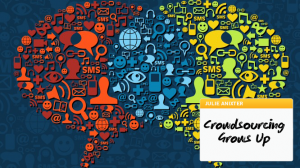Here are some of the online sites we’ve been exploring this month.
Digitisation’s Most Wanted
What are the most commonly accessed digitised items from heritage organisations? Even asking the question leads to further understanding about the current digitisation landscape……….
……These results, from very different institutions, invite discussions on shallow versus deep engagement with digital collections. Some examples of commonly accessed material are what we would think of as part of the Canon of Digitised Content: Shakespeare, Newton, Medieval Manuscripts. Some examples of commonly accessed material here can be taken as little more than clickbait – LOL! History! – or free reference material – its a free Malaysian Dictionary! Bonus! – but is getting people through the virtual door to digitised collections in this way, and through these items, such a bad thing? Come for the Dog with the pipe in its mouth! stay for the genealogy, then the discussions on palaeographic method!
Check out the answers and resulting discussion!
Crowdsourcing Grows Up: 7 Indicators it’s here to stay
It’s been almost ten years since James Surowiecki published The Wisdom of Crowds, which launched the notion that there was wisdom, and indeed robust solutions to be harvested from “crowds” that far exceeded comparable individual efforts.
According to Surowiecki, these key criteria separate wise crowds from irrational ones:
Criteria Description Diversity of opinion Each person should have private information even if it’s just an eccentric interpretation of the known facts. Independence People’s opinions aren’t determined by the opinions of those around them. Decentralization People are able to specialize and draw on local knowledge. Aggregation Some mechanism exists for turning private judgments into a collective decision. In parallel, aggregation platforms – often called Idea Management software were coming into being and in the decade since have matured, grown up, and become standard operating procedure for businesses solving problems of all kinds via crowdsourcing.
The Differences between Digital History and Digital Humanities
Scholars exploring digital media and technology have gained much from emphasizing what they have in common, particularly in a context when such explorations enjoyed at best tenuous recognition within disciplinary settings. However, in recent years the consistent presence of digital sessions at the annual conferences of the AHA and OAH, as well as of smaller organizations such as the Southern Historical Association, the Urban History Association and the International Congress on Medieval Studies, testify to a growing recognition that digital media and technology are part of scholarly practice. But that recognition does not mean that most historians have explored what can be done with digital tools, are equipped to do so, or are even convinced that those tools have anything to offer their own research and teaching.
Read more about the debate
Off with their Heads?: Matchbooks in Archives
I have a special spot in my heart for oddball items in the archives. When a colleague approaches me with a question such as: “Nora, we have artists’ matchbooks! Should we remove them? Will they spontaneously ignite? Will someone try to light them and set fire to the archives accidentally, or worse, on purpose?!,” I delight in putting my creative problem-solving mind to work. Also, I get to learn new words, such as phillumeny (the hobby of collecting matchbox labels, printed matchbox outers, matchboxes, matchbook covers, matchbooks, and other forms of match packaging).
Results #WW1archives June 10 2014
What a great day we had on June 10, 2014, celebrating International Archives Day with the Twitter event #WW1archives!
Lots of archives, liraries, museums, other heritage organisations and tweeps participated, tweeting about the First World War in their archives or private collections.

